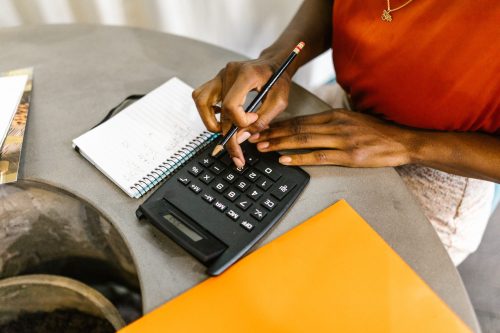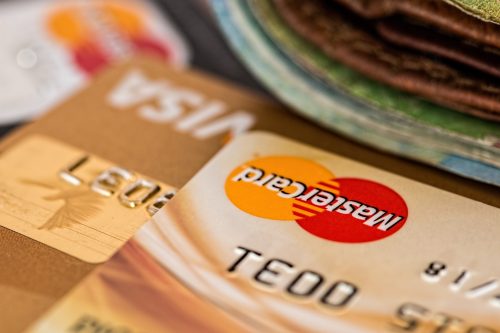- When planning travel, be mindful of hotel-booking and fake vacation rental scams online.
- As you travel it’s important to keep track of purchases to avoid fraudulent charges.
- Keeping devices safe includes keeping the operating systems updated and backed up.
For many, travel is a way to take a break and spend some time away from life’s responsibilities. While most of us associate travel with relaxation and exploration, fraudsters view travel seasons as another opportunity to test out attacks. So before you book that cozy cottage or surprisingly inexpensive flight, read about some of the most common travel-related scams and how to defend yourself against them.
Common travel planning scams
Most travel scams take place before you depart. Before you book, be mindful of the following:
Hotel-booking site scams
Saving money on a hotel room is appealing, which is why booking scams are a common tactic. Users trying to find the best deals on their vacations may look for ads with discounts or specials, only to find out later that the specials or hotels don’t exist.
It’s best to steer clear of discount hotel and lodging ads, given that anyone, even fraudsters, can create false ads. Instead, click on the website without the word “Ad” next to it when search results show up in your web browser. If there are any discounts or specials available, they’ll be on the hotel’s legitimate booking website (typically at the checkout stage).
Fake vacation rental sites
Fraudsters have taken note of the increased popularity of users booking vacation rental homes through popular rental sites. Bad actors take advantage of vacationers by posting fake listings with seemingly great deals. These fake posts can be challenging to spot, as they typically feature copied images and details from legitimate listings.
Fraudsters will usually ask for money outside of the platform, often via wire transfer or a direct peer-to-peer (P2P) payment app, which offers little to no protection to consumers.
Paying through an unprotected platform or website not only poses a threat to your funds, but it also puts sensitive identifying information at risk.
Pretravel safety tips
There are many defenses you can put in place before traveling in order to help keep your information safe. To start with, notify your credit card company and bank of your vacation location(s) and dates.
Most financial institutions have safeguards in place to detect identity theft and fraud. If you start spending money in an international location or one that’s not typical for you, your financial institutions may flag charges as fraud and block payments from going through.
Doing comprehensive research
When planning a vacation, it’s easy to focus on the activities you’ll be doing while on your trip. However, it’s equally important to research dangerous locations for tourists, as well as common scams in the areas where you’ll be traveling.
Financial and physical security during travel
While it’s helpful to raise whatever defenses you can in advance, it’s crucial to operate with physical and financial safety in mind during your travels too.
Safeguarding your physical assets
There’s no foolproof method of how and where you should store your money and devices when you’re traveling, but it’s a best practice to not leave any of your items unattended, especially in public settings.
Keep your devices, credit cards and money physically secure while you’re in airports and hotels or just sightseeing; this will help prevent unauthorized access and physical theft. Keep track of your purchases.
If you don’t like to ask for printed receipts, be sure to keep track of the purchases you make while away and regularly review your bank activity and statements. Make sure your account transactions are legitimate and not the work of a fraudster.
Staying cyber-safe while traveling
When traveling, it’s not always your finances that are at risk — please consider the following tips to mitigate against various cybersecurity risks.
Before leaving
The following tips can help fend off digital dangers even before you embark on your trip:
- Back up your data in case it or your device(s) are lost, stolen, or compromised.
- Ensure that your antivirus software is up to date on all your devices.
- Confirm all of your device operating systems are updated to the newest versions to keep them secure.
- Update all your apps on your devices before you depart to ensure you have the latest versions and security patches.
- Turn off auto-connecting to Wi-Fi, and keep in mind that Bluetooth can also be used to wirelessly connect with other devices.
- Be mindful of physical theft, and protect your devices with complex and unique passcodes.
- If you plan on working during your vacation, let your company and bank know where you’ll be and how long you’ll be gone.
During your stay
Follow these tips focus on while you’re traveling:
- If you plan on working on your devices (especially company-issued devices), consider using a privacy screen to protect your company’s information.
- To avoid “shoulder surfing” attacks when working in public spaces, (e.g., airports, hotel lobbies, cafes), try to find a more secluded area (for instance against a wall) to mitigate the risk of someone viewing your private information.
- When working in public spaces, consider using your personal hotspot and/or a VPN to connect to Wi-Fi for an added layer of security.
- Avoid accessing your accounts with sensitive information (e.g., banking, medical). Don’t make purchases while on public Wi-Fi, as this opens the possibility that a fraudster can intercept the transaction.
- Avoid working on public devices (such as library or hotel computers) as they could have spyware or keyloggers downloaded onto them.
- Be cautious when using ATMs while traveling. Make sure that no additional pieces are affixed to the ATM that could steal your card information.
Security recommendations from First Republic
Traveling is a great way to relax and unwind, but there’s no reason your vigilance shouldn’t come along for the ride. Following the above tips can help keep your personal information, money and possessions safe while you enjoy your next adventure.










